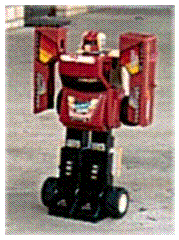Seeing His Glory
Reading: Mark 9.2-13
For centuries, folk tried to find ways to get rich quickly. People
called alchemists experimented with the so-called "base"
metals in the belief that they could turn them into gold. They
didn't ever do it, of course. In time alchemy collapsed under
the more serious study of chemistry - understanding all the elements
that make up the universe and how they combine and react with
one another.
The longing to turn things to gold was also expressed in the story
of King Midas. He wished that everything he touched would turn
to gold. His greedy wish turned against him. Food and drink turned
to gold - even his daughter. I'm not sure the end of that story
is ever told.
 Back in the 1800s, real gold was found in a number of places around
Australia - and the "gold rush" was on. We visited Robe
in South Australia and learnt of Chinese who landed there and
walked all the way to the Victorian goldfields - avoiding a state
tax that would have cost them as much as their fare from China.
Back in the 1800s, real gold was found in a number of places around
Australia - and the "gold rush" was on. We visited Robe
in South Australia and learnt of Chinese who landed there and
walked all the way to the Victorian goldfields - avoiding a state
tax that would have cost them as much as their fare from China.
 Science fiction writers and toy-makers have also pursued the dream
of transforming things into the totally different. The phase came
too late for our boys - the "transformer" toys. The
truck becomes a robot, then becomes a truck again. So... what
is it really? On the movie screen, it may well sprout wings and
fly off into the distance.
Science fiction writers and toy-makers have also pursued the dream
of transforming things into the totally different. The phase came
too late for our boys - the "transformer" toys. The
truck becomes a robot, then becomes a truck again. So... what
is it really? On the movie screen, it may well sprout wings and
fly off into the distance.
Transfigured!
Today's reading tells us that Jesus was "transfigured"
in front of Peter, James and John (Mk 9.2). Now, that's rather
different from the transformer toys.
With the transformer toy, the result is so different that, at
first view, we are inclined to say, "How on earth did you
do that?" When we really look at it, the potential for the
robot has been there all along, but the result is unrecognisably
different.
In today's story we read, "His clothes became dazzling white,
whiter than anyone in the world could bleach them. And there appeared
before them Elijah and Moses, who were talking with Jesus"
(vv. 3-4). So they could still recognise him as Jesus, but they
saw him as they had never seen him before.
John and Peter were so impressed that they both wrote about it
much later. John began his gospel by writing about the divine
Word through whom all things were created (Jn 1.3) - "The
Word became flesh and made his dwelling among us. We have seen
his glory, the glory of the One and Only, who came from the Father,
full of grace and truth" (v. 14). In his second letter, Peter
wrote, "We did not follow cleverly invented stories when
we told you about the power and coming of our Lord Jesus Christ,
but we were eyewitnesses of his majesty. For he received honor
and glory from God the Father when the voice came to him from
the Majestic Glory, saying, 'This is my Son, whom I love; with
him I am well pleased.' We ourselves heard this voice that came
from heaven when we were with him on the sacred mountain"
(2 Pet. 1.16-18).
It wasn't that they were looking at someone other than Jesus.
At that point they had a glimpse of Jesus' "glory."
They saw something about Jesus that was hidden for the rest of
his earthly life - Jesus was more than just a wonderful human
companion and teacher.
Paul didn't become a Christian believer until much later. Out
to destroy Christians he was confronted by the risen Jesus on
the road to Damascus. He wrote to the Philippians that Jesus,
truly and fully divine, "made himself nothing, taking the
very nature of a servant, being made in human likeness,"
and that he "humbled himself and became obedient to death
- even death on a cross" (Phil. 2.7,8).
So the Jesus the disciples knew wasn't walking around the earth
in awesome heavenly splendour. He had "made himself nothing"
("emptied himself"). He lived here as another human
being, accepting all the restrictions of human life. He became
hungry and thirsty. He walked everywhere and became tired. As
God the Son in heaven, he hadn't needed to do any of that. And
now that he is raised and exalted to glory, he doesn't need to
do it now, either. He can be here, in South Africa and in outer
space, all at once. If all the people in the world start praying
at once, he doesn't miss one prayer. But while he was here he
had made himself nothing and humbled himself. Just for a short
moment on the mountain with three disciples, his glory shone through.
Let's Stay Here!
It was an amazing, spine-tingling experience. Perhaps you have
had an experience that defies words. All you can say is "Wow!"
You don't want to go and "break the magic moment."
That's how Peter felt about it - "Rabbi, it is good for us
to be here. Let us put up three shelters - one for you, one for
Moses and one for Elijah" (Mk 9.5). It's good to be here
-what other reason needs to be given? Mark has told us that Elijah
and Moses were talking to Jesus (v. 4). What were they talking
about? Luke tells us, "They spoke about his departure, which
he was about to bring to fulfillment at Jerusalem" (Lk. 9.31).
Did they really grasp that? Was that what sparked Peter's comment?
This heavenly moment was about a very dark earthly subject. Jesus
was going to die - it was all part of the plan. Let's just stay
here and avoid all that. There's too much brokenness, anger and
sadness out there - let's stay here on the mountain!
This all happened after Peter's confession of Jesus as the Christ
(Mk 9.27-30) and after Jesus had begun to teach them about his
suffering and death. Peter had rebuked Jesus for suggesting that
would happen and Jesus rebuked Peter in strong terms, "Get
behind me, Satan!" (vv. 31-33). Yet, it seems, Peter still
didn't understand. He didn't take Jesus to task, but his words
suggest he wanted the present exaltedly happy experience to continue
on and on.
Hear and Heed!
Then a cloud appeared and enveloped them, and a voice came from
the cloud: "This is my Son, whom I love. Listen to him!"
(Mk 9.7)
Listen! Have you ever had one of those conversations where the
other person says to you, "I hear what you are saying, but..."?
Even before those words, you have felt by their body language
that they weren't taking it in at all - didn't even think what
you had said was important to consider! "I hear what you
are saying" usually means "I disagree with you."
Listen! The Greek word gives us all our English "acoustic"
words. A stronger form of it is usually translated "obey".
Hear and heed! Listen and do something about it!
When Moses was speaking to the people towards the end of his life,
he said to them, "The Lord your God will raise up for you
a prophet like me from among your own brothers. You must listen
to him. For this is what you asked of the Lord your God at Horeb
on the day of the assembly when you said, 'Let us not hear the
voice of the LORD our God nor see this great fire anymore, or
we will die'." (Dt. 18.15-17)
The parable of the wise and foolish builders is about those who
"hear" the words of Jesus - the wise "put them
into practice", the foolish fail to do so (Mt. 7.24-27).
When Jesus was explaining the parables to his disciples, he said,
"This is why I speak to them in parables: Though seeing,
they do not see; though hearing, they do not hear or understand."
He then went on to explain the parable of the sower. It was about
those who have heard the message about the kingdom - and what
they have done with it (13.11-23).
Transformers - transfiguration - it seems like the answer to Peter's
problem! Let's stay here - we're touching heaven already! Perhaps
we can avoid all the unpleasantness, all the nastiness, all the
cruelty - cheating death itself!
Not so quick, Peter! We're not there yet! My cross is up ahead
- for you and the world - for the forgiveness of sins - for yours
and theirs! And there's a cross for you to take up and follow
me - in faithful living, in caring serving, in strong proclaiming
- and then in dying to enter into glory!
The mountain is a glimpse of heaven, but there's more work to
be done - work on our lives, work in this world. Our prayer should
be that of Charles Wesley -
Finish then thy new creation,
pure and spotless let us be,
let us see thy great salvation,
perfectly restored in thee:
changed from glory into glory,
till in heaven we take our place,
till we cast our crowns before thee,
lost in wonder, love and praise. (AHB 148)
© Peter J. Blackburn, Home Hill and Ayr Uniting Churches,
16 February 2003
Except where otherwise noted, Scripture quotations
are from the New International Version, © International
Bible Society, 1984.
Back to Sermons
 Back in the 1800s, real gold was found in a number of places around
Australia - and the "gold rush" was on. We visited Robe
in South Australia and learnt of Chinese who landed there and
walked all the way to the Victorian goldfields - avoiding a state
tax that would have cost them as much as their fare from China.
Back in the 1800s, real gold was found in a number of places around
Australia - and the "gold rush" was on. We visited Robe
in South Australia and learnt of Chinese who landed there and
walked all the way to the Victorian goldfields - avoiding a state
tax that would have cost them as much as their fare from China.
 Science fiction writers and toy-makers have also pursued the dream
of transforming things into the totally different. The phase came
too late for our boys - the "transformer" toys. The
truck becomes a robot, then becomes a truck again. So... what
is it really? On the movie screen, it may well sprout wings and
fly off into the distance.
Science fiction writers and toy-makers have also pursued the dream
of transforming things into the totally different. The phase came
too late for our boys - the "transformer" toys. The
truck becomes a robot, then becomes a truck again. So... what
is it really? On the movie screen, it may well sprout wings and
fly off into the distance.